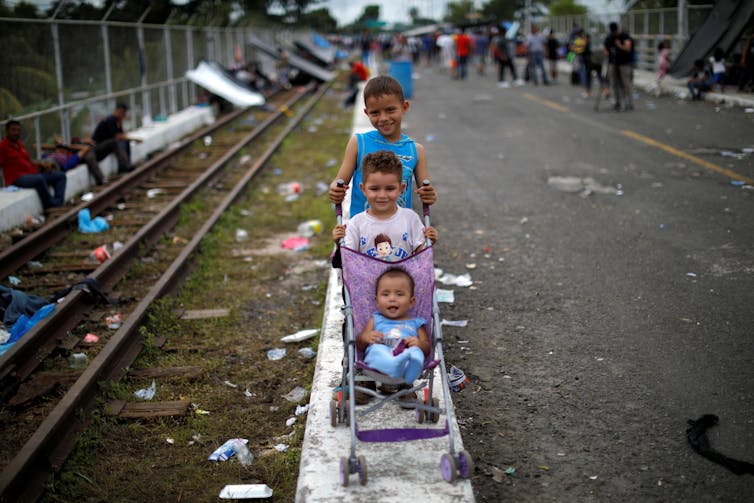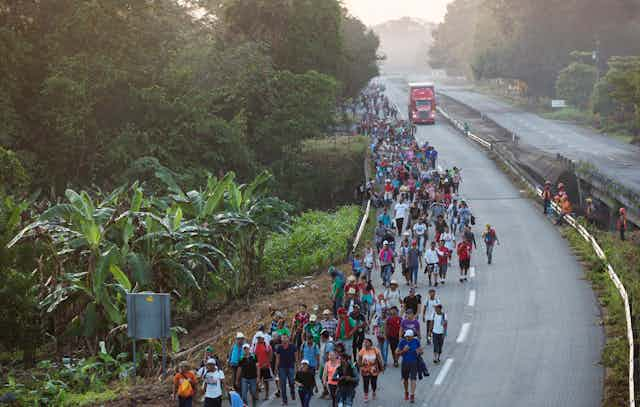A caravan of Central American migrants traveling to through Mexico to the United States to seek asylum is about halfway through its journey.
The caravan began on Oct. 13 in Honduras with 200 people. As it has moved through Honduras, Guatemala and now Mexico, its ranks have grown to over 7,000, according to an estimate by the International Organization of Migration.
The migrants have been joined by representatives from humanitarian organizations like the Mexican Red Cross providing medical assistance and human rights groups that monitor the situation.
Journalists are there, too, and their reporting has caught the attention of President Donald Trump.
He has claimed that the caravan’s ranks probably hide Middle Eastern terrorists. Trump later acknowledged there is no evidence of this, but conservative media outlets have nevertheless spread the message.
It is reasonable for Americans to have security concerns about immigration. But as a scholar of forced migration, I believe it’s also important to consider why migrants travel in groups: their own safety.
Safety in numbers
The Central Americans in the caravan, like hundreds of thousands of people who flee the region each year, are escaping extreme violence, lack of economic opportunity and growing environmental problems, including drought and floods, back home.
Guatemala, Honduras and Mexico have some of the world’s highest murder rates. According to Doctors Without Borders, which provides medical care in crisis zones, 68 percent of the migrants and refugees it surveyed in Mexico had experienced violence. Nearly one-third of women were sexually abused.

Whether crossing Central America, the Sahara desert or the mountains of Afghanistan, migrants are regularly extorted by criminals, militias and corrupt immigration officials who know migrants make easy targets: They carry cash but not weapons.
Large groups increase migrants’ chance of safe passage, and they provide some sense of community and solidarity on the journey, as migrants themselves report.
Publicizing the dangers they flee
Large groups of migrants also attract media coverage. As journalists write about why people are on the move, they shed light on Central America’s many troubles.
Yet headlines about huge migrant caravans may misrepresent trends at the U.S.-Mexico border, where migration is actually decreasing.
While the number of Central American families and children seeking asylum in the U.S. has increased in the past two years, Mexican economic migrants are crossing the border at historically low levels.
And while most migrant caravan members hope to seek asylum in the U.S., recent history shows many will stay in Mexico.
In response to Trump’s immigration crackdown, Mexican president-elect Andrés Manuel López Obrador has promised to welcome Central American refugees — and try to keep them safe.


